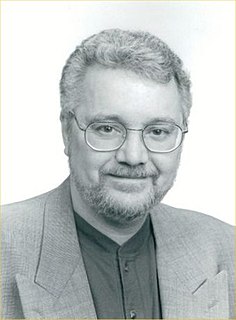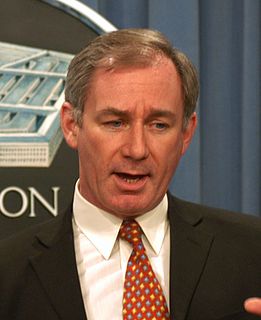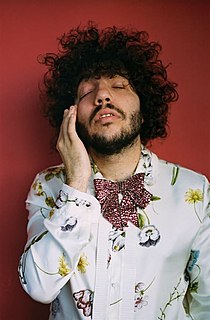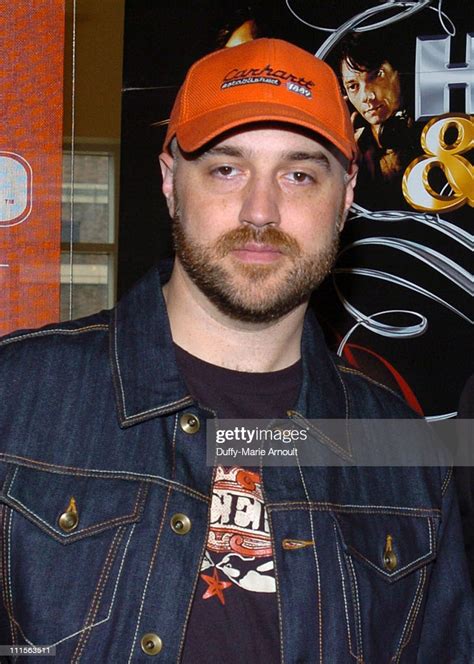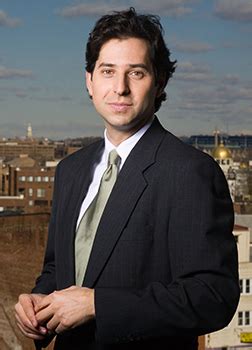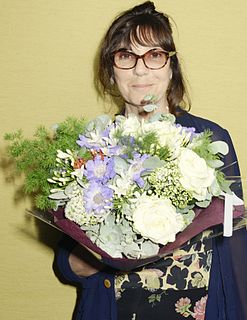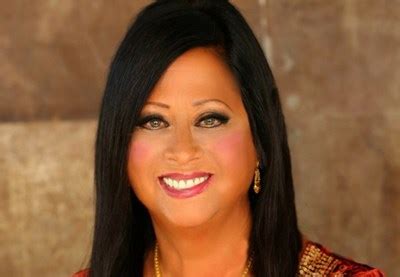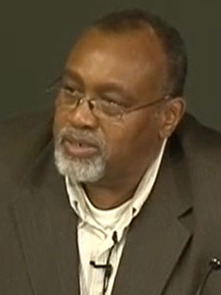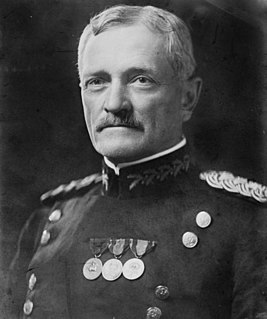Top 706 Deciding What To Do Quotes & Sayings - Page 11
Explore popular Deciding What To Do quotes.
Last updated on April 18, 2025.
I do not believe in free will. Schopenhauer's words: 'Man can do what he wants, but he cannot will what he wills,' accompany me in all situations throughout my life and reconcile me with the actions of others, even if they are rather painful to me. This awareness of the lack of free will keeps me from taking myself and my fellow men too seriously as acting and deciding individuals, and from losing my temper.
The project of organizing a democratic political movement entails the hope that one's ideas and beliefs are not merely idiosyncratic but speak to vital human needs, interests and desires, and therefore will be persuasive to many and ultimately most people. But this is a very different matter from deciding to put forward only those ideas presumed (accurately or not) to be compatible with what most people already believe.
Well, marriage doesn't function in the way it used to in terms of deciding our fate, but it's in our heads, and it determines a lot of our actions. Like, right now, if you think about gay marriage - and they just started having the first gay marriages in New York - it shows what a potent idea marriage remains for people.
I started school because I felt like, as a songwriter, I was operating solely on instinct, and I was having a hard time deciding exactly what words I wanted to use. I felt like I wanted to be a writer, and being a curious person, school felt like a way to solve the problems I was having with my own work.
Scobe's Eighth Law: The moron will enter the single deck game when the count is sky high and the dealer is deciding whether or not to shuffle. The morons's entrance will convince the dealer that it's time to shuffle. You will now face a new deck with your biggest bet out and the pit boss watching closely.
Iraq's invasion of Kuwait is a case of bad men doing wrong things for wicked reasons. This is the full-sized or standard purebred evil and is easily recognized even by moral neophytes. Other malignities-drugs in America, famine in Africa and everything in the Middle East-are more complex. When combating those evils people sometimes have trouble deciding whom to shoot.
Our street corners keep secrets, and our road signs only suggest, never deciding for us, never knowing if the destination to which they lead, is where we truely belong.
Life's greatest tragedy is not that it will some day end, but that most of us just live to follow directions, and many times we end up totally lost.
You can survive tough situations and even turn them to your advantage by acting as if you are the person you want to be. When you act like that person, you can become that person. The hard parts are deciding whom you want to become, being willing to rehearse until you become that person, and forgiving yourself until you do.
There's the whole Mad Hatter's dilemma, it was the amount of mercury that they used in the glue to make the hats. Everything was damaging. So, in terms of the Mad Hatter, looking at it from that perspective of this guy who literally is damaged goods, physically damaged, emotionally a little obtuse, and taking that and deciding that he should be - as opposed to just this hyper, nutty guy - he should explore all sides of the personality at an extreme level.
How can a novelist achieve atonement when, with her absolute power of deciding outcomes, she is also God? There is no one, no entity or higher form that she can appeal to, or be reconciled with, or that can forgive her. There is nothing outside her. In her imagination she has set the limits and the terms. No atonement for God, or novelists, even if they are atheists. It was always an impossible task, and that was precisely the point. The attempt was all.
Being aware of truths about what is good or right or about what we ought to do is not the same as deciding what to do. Nor can the former truths be derived from decisions about what to do, or about procedures for making such decisions, unless these procedures themselves rest in some way on the apprehension of truths about what we ought to do.
One day they might. I accept that in the short term the consequences are terrible. No one minimises those and I'm not seeking to do so. But what I am saying is that this is a country that has been brutalised for decades by this appalling regime and that the restoration of that country to its own people, the possibility of their deciding their future... and indeed the way in which they go about thier lives, ultimately, yes, that will be a better place for people in Iraq.
They keep coming up new all the time - things to perplex you, you know. You settle one question and there's another right after. There are so many things to be thought over and decided when you're beginning to grow up. It keeps me busy all the time thinking them over and deciding what's right. It's a serious thing to grow up, isn't it, Marilla?
The writer is a person who is standing apart, like the cheese in 'The Farmer in the Dell' standing there alone but deciding to take a few notes. You’re outside, but you can see things up close through your binoculars. Your job is to present clearly your viewpoint, your line of vision. Your job is to see people as they really are, and to do this, you have to know who you are in the most compassionate possible sense. Then you can recognize others.
There are only two ways for me to leave Chelsea. One way is in June 2010 when I finish my contract and if the club doesn’t give me a new one. It is the end of my contract and I am out. The second way is for Chelsea to sack me. The way of the manager leaving the club by deciding to walk away, no chance! I will never do this to Chelsea supporters.
After the war in Afghanistan, Anna [Wintour, editor of Vogue], deciding to save the world one hair-roller at a time, thought the best way to help the women in this beleaguered country was to start a small beauty school in Kabul, where aid workers could get their roots done. Vanity Fair, edited by Bush-basher Graydon Carter, cheered her great humanitarian effort.
It's a very complex network of genes making products which go into the nucleus and turn on other genes. And, in fact, you find a continuing network of processes going on in a very complex way by which genes are subject to these continual adjustments, as you might say - the computer programmer deciding which genes ultimately will work.
Do you know what causes low voter turnout in America? It's the result of having the fate of our nation at stake. This began with the bitter presidential election of 1828, which pitted the education, cultivation, and puritan constraint of John Quincy Adams against the yahoo populism of Andrew Jackson, thereby deciding permanently whether America would become a shining city upon a hill or an overlighted strip mall along a highway.
The question is not what anybody deserves. The question is who is to take on the God-like role of deciding what everybody else deserves. You can talk about 'social justice' all you want. But what death taxes boil down to is letting politicians take money from widows and orphans to pay for goodies that they will hand out to others, in order to buy votes to get re-elected. That is not social justice or any other kind of justice.
I believe that you can fall in love many times with many different people. However, I don't think that you can fall in love the same way twice. One type of relationship may be steady. Another may be fire and brimstone. Who is to say if one of these is better that the other? The deciding factor is how it all fits together. Your love, I mean, and your life.
It has often been argued that absolute scepticism is self-contradictory; but this is a mistake: and even if it were not so, it would be no argument against the absolute sceptic, inasmuch as he does not admit that no contradictory propositions are true. Indeed, it would be impossible to move such a man, for his scepticism consists in considering every argument and never deciding upon its validity; he would, therefore, act in this way in reference to the arguments brought against him.
Bertrand Russell used to employ the method of "evidence against interest"; in other words of deciding that a critique of capital punishment, say, carried more weight if it came from a prison governor. (My friend John O'Sullivan puts it like this: If the pope says he believes in God, he's only doing his job; if he says he doesn't believe in God, he may be on to something.)
No matter what someone else has done, it still matters how we treat people. It matters to our humanity that we treat offenders according to standards that we recognize as just. Justice is not revenge - it's deciding for a solution that is oriented towards peace, peace being the harder but more human way of reacting to injury. That is the very basis of the idea of rights.
We're just a conceited, naked ape. But in our minds we're some sort of "divine legend," and we see ourselves as some sort of god. That we can walk around the earth deciding who will live and who will die and what will be destroyed and what will be saved. But the fact is we're just a bunch of primates out of control.
The hardest single part of building a software system is deciding precisely what to build the most important function that software builders do for their clients is the iterative extraction and refinement of the product requirements. For the truth is, the clients do not know what they want. They usually do not know what questions must be answered, and they have almost never thought of the problem in the detail that must be specified.
You will permit me to say, that a greater drama is now acting on this theatre than has heretofore been brought on the American tage, or any other in the world. We exhibit at present the novel and astonishing spectacle of a whole people deliberating calmly on what form of government will be most conducive to their happiness; and deciding with an unexpected degree of unanimity in favour of a system which they conceive calculated to answer the purpose.
I hope President [Hamid] Karzai understands that our national security interests don't depend entirely on his decision there whether to allow a recount. Obviously the legitimacy of that government is an important component of it. My point is it shouldn't be the lynch pin for us deciding whether we're going to protect our national security interests in that region.
That said, deciding to avoid other people does not necessarily equate with having no desire whatsoever for company; it may simply reflect a dissatisfaction with what—or who—is available. Cynics are, in the end, only idealists with awkwardly high standards. In Chamfort's words, 'It is sometimes said of a man who lives alone that he does not like society. This is like saying of a man that he does not like going for walks because he is not fond of walking at night in the forêt de Bondy.
Pour the bulk of your time into action, not deciding. The state of indecision is a major time waster. Don't spend more than 60 seconds in that state if you can avoid it. Make a firm, immediate decision, and move from uncertainty to certainty to action. Let the world tell you when you're wrong, and you'll soon build enough experience to make accurate, intelligent decisions.
I remember the moment in which we were taken hostage in Libya, and we were asked to lie face down on the ground, and they started putting our arms behind our backs and started tying us up. And we were each begging for our lives because they were deciding whether to execute us, and they had guns to our heads.
You can't have a democracy with an armed political party willing to bomb its neighbor without the consent of its government or, you know, just deciding, "Well, let's create enough chaos and discord by lobbing rockets. And so the reality is in order for Lebanon to succeed and we want Lebanon's democracy to succeed the process is going to the Lebanese government's eventually going to have to deal with Hezbollah.
That movie was my girlfriend. That was my girl." I knew there was going to be initial anger. As a matter of fact, when I was deciding to do Footloose that was one of the first things that I had to realize. First of all, I had to figure out a human connection to it but then I also had to reconcile that I was going to get beat up a little bit on this a little bit.
Global warming results not from the emission of greenhouse gases into the atmosphere, but from an unusually high level of solar radiation and a lengthy - almost throughout the last century - growth in its intensity. It is no secret that when they go up, temperatures in the world's oceans trigger the emission of large amounts of carbon dioxide into the atmosphere. So the common view that man's industrial activity is a deciding factor in global warming has emerged from a misinterpretation of cause and effect relations.
I think it's very important to be able to hear from our public leaders in ways that they can't entirely orchestrate, seeing them speak live and unscripted and take questions that they themselves haven't arranged ahead of time. I think this is a way in which citizens who are deciding what they think of their leaders who govern in their name, this is one of the ways in which they can evaluate how they feel about the quality of the leadership.
Congress has created and funded a huge peacetime military that has substantial abilities to wage offensive operations, and it has not placed restrictions on the use of that military or the funds to support it, because it would rather let the president take the political risks in deciding on war. If Congress wanted to play a role in restricting war, it could - it simply does not want to. But we should not mistake a failure of political will for a violation of the Constitution.
Our kids didn't do this to themselves. They don't decide the sugar content in soda or the advertising content of a television show. Kids don't choose what's served to them for lunch at school, and shouldn't be deciding what's served to them for dinner at home. And they don't decide whether there's time in the day or room in the budget to learn about healthy eating or to spend time playing outside.
By all means give vent to your anger, let it out in nondestructive ways--if you are still deciding to have it. But begin to think of yourself as someone who can learn to think new thoughts when you are frustrated, so that the immobilizing anger can be replaced by more fulfilling emotions. Annoyance, irritation, and disappointment are feelings that you will very likely continue to experience, since the world will never be the way you want it. But anger, that hurtful emotional response to obstacles, can be eliminated.
That experience showed me that I-from moment to moment-am the only person in control of my connection to God. It's not that God is deciding to connect with me, depending on whether I had a good day, or did good or bad deeds. It's all up to me. God, the awareness of God, the love of God, the blessings of God-that lively ecstasy-is always there. It's me who separates from God by judging, by indulging in negativity, by criticizing myself, as well as others.
How, voters will ask, can we cover 50 million new people without any new doctors or nurses? The answer is to ration health care, with the U.S. government deciding whom will get hip and knee replacements, heart bypass surgery and all manner of medical treatments. And what does rationing mean? It means that the elderly will be denied care, which they can now get whenever they want it.
For those who have only to obey, law is what the sovereign commands. For the sovereign, in the throes of deciding what he ought to command, this view of law is singularly empty of light and leading. In the dispersed sovereignty of modern states, and especially in times of rapid social change, law must look to the future as well as to history and precedent, and to what is possible and right as well as to what is actual.
Again, when we view a scene fleetingly, do we consciously see all the details even though we don't retain them, or do we not see them in the first place? Neurological information is crucial to deciding these questions. After all, they are so interesting precisely because unaided introspection cannot resolve them. Rather we need to know what is going on in the brain activities that constitute visual awareness.
You can put a person in jail for 5 years, for 10 years, or 20 years, for the same crime. We're deciding on 10 years to 20 years, when 5 years would be enough. Okay. The deterrent value, the additional amount of leverage that you get over a criminal to keep them from breaking the law in the first place, associated with making the sentences longer, is de minimous; it's essentially nothing.
I see a lot of possibilities in the age of my characters - between 18 and 21. You have a window of opportunity when you leave your childhood behind and have this chance to become what you always wanted to be. For me, that was a time when I could have gone many different ways. I was in flux and deciding what kind of person I would become. There's something interesting about the vision of what that will be and the reality of making that happen, and how you really are what you are. Unless you're "in character," it's impossible to get around that.
The representatives of business interests are the men to start this enterprise among our people and bring them to a full realization of the very grave seriousness of this war, to make them feel that we are in this war to win, and the probability is that our entering this war is going to be the deciding factor, and that the burden of the success is going to rest upon the United States.
Independent films are very hard to get made, but I'm lucky enough to get them made, so I'm going to keep doing it. I like my independence. I like being able to tell a story the way I want to tell a story. I don't like developing it with a team. I like coming to a story and deciding whether I want to do it or not.
I recently went to my staircase at Clare College, Cambridge and there were women there! There have been a lot of convincing studies recently about the loss of productivity in the Western male. It may be that entertainment culture now is so engaging that it keeps people satisfied. We didn't have that. Science was much more fun than listening to the radio. When you are 16 or 17 and in that inherently semi-lonely period when you are deciding whether to be an intellectual, many now don't bother.
This is how life works. Deciding whom to love is not an alien form of decision-making , a romantic interlude in the midst of normal life. Instead, decisions about whom to love are more intense versions of the sorts of decisions we make throughout the course of our existence, from what kind of gelato to order to what career to pursue. Living is an inherently emotional business.
Weakness for wealth and for collecting and owning things of different kinds; the urge for physical (sensuous) enjoyment; the longing for honour, which is the root of envy; the desire to conquer and be the deciding factor; pride in the glory of power; the urge to adorn oneself and to be liked; the craving for praise; concern and anxiety for physical well-being. All these are of the world; they combine deceitfully to hold us in heavy bonds.
My most persistent memory of stand - up is of my mouth being in the present and my mind being in the future: the mouth speaking the line, the body delivering the gesture, while the mind looks back, observing, analyzing, judging, worrying, and then deciding when and what to say next. Enjoyment while performing was rare - enjoyment would have been an indulgent loss of focus that comedy cannot afford.
I think Leonardo da Vinci teaches us the value of both being focused on things that fascinate us but also, at times, being distracted and deciding to pursue some shiny new idea that you happen to stumble upon. Balancing intense focus with being interested in a whole lot of different things is something that we have to do in the Internet age.
My fellow Americans, all of us in this grand hall and everybody watching at home, when we vote in this election, we'll be deciding what kind of country we want to live in. If you want a winner-take-all, you're-on-your-own society, you should support the Republican ticket. But if you want a country of shared opportunities and shared responsibility, a we're-all-in-this-together society, you should vote for Barack Obama and Joe Biden.
I mean by intellectual integrity the habit of deciding vexed questions in accordance with the evidence, or of leaving them undecided where the evidence is inconclusive. This virtue, though it is underestimated by almost all adherents of any system of dogma, is to my mind of the very greatest social importance and far more likely to benefit the world than Christianity or any other system of organized beliefs.
The black man in North America was sickest of all politically. He let the white man divide him into such foolishness as considering himself a black 'Democrat,' a black 'Republican,' a black 'Conservative,' or a black 'Liberal' ...when a ten-million black vote bloc could be the deciding balance of power in American politics, because the white man's vote is almost always evenly divided.




